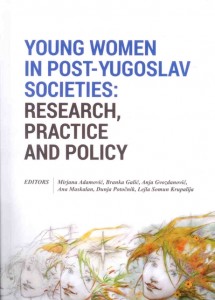M. Adamović; B. Galić; A. Gvozdanović; A. Maskalan; D. Potočnik; L. Somun Krupalija (Eds)
ISBN 978-953-6218-56-1 (Institute for Social Research in Zagreb)
ISBN 978-9958-541-12-4 (Human Rights Centre)
Institute for Social Research – Human Rights Centre, University of Sarajevo, Zagreb and Sarajevo, 2014
| The publication of the proceedings “Young Women in Post-Yugoslav Societies: Research, Practice and Policy” is a result of the project “Young Women and Gender Equality in Post-Yugoslav Societies: Research, Practice and Policy”, supported by UNESCO within the framework of the Participation Programme for 2012-2013. These proceedings have a regional character and the term region denotes societies that were, up until recently in historical terms, bound by the borders of a common state. These different societies are connected by more than just neighbourly relations. Not only do they share the common inheritance, history, and destiny, they share the problems which the process of becoming independent did not manage to erase. |
 |
| Old difficulties were accompanied by new dilemmas regarding social, economic and political processes that these societies had to go through, processes that largely determine the social position of women. However, the proceedings were created with the knowledge that the societies in question are different and have given different answers to similar issues throughout the past twenty years. This difference is reflected in the example of contact and interaction of different patriarchal cultures in the region. Therefore, the main focus of this work, apart from the generational belongingness, is to present different discourses to explain the methods and the context of achieving gender equality through the prism of research, activist and policy oriented activity. The readers of this publication have 5 main chapters before them which cover various anthropological, psychological, sociological, political, and legal foundations and perspectives of gender equality of young women. The proceedings discussed gender relations and the ways in which they are formed within the ideal-type sections: education, labour market, family, violence against women, and culture. |
Download the book here
